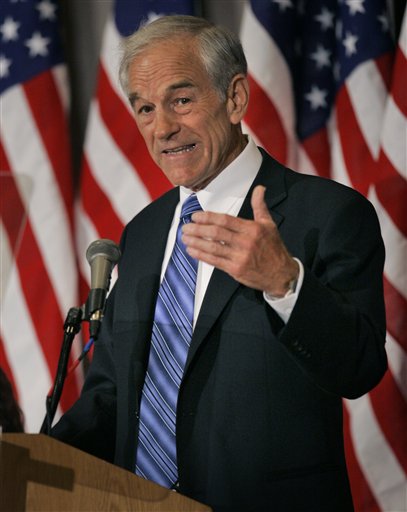
Ron Paul
Sunday January 13, 2008
After a careful investigation, I have decided against seeking a recount in New Hampshire. I am confident that not asking for a recount is the right decision.
I carefully considered the arguments for and against a recount before instructing my campaign staff not to pursue it. Without a firm belief that vote fraud had taken place, and without the possibility that a recount would have increased the chances for success of our campaign, a recount would have diverted campaign resources, time, and energy away from crucial battles elsewhere.
We have taken concerns about vote fraud seriously. In Iowa, campaign volunteers carefully monitored the caucuses. Campaign staff placed Paul supporters in every precinct to watch and verify the voting and count. We had supporters phone in results from their precincts to a campaign hotline while others ensured that those numbers were reflected on the official display board at the Polk County Convention Center. The numbers our caucus watchers reported agreed with the official tally, and both results also aligned with the campaign’s internal polling. In relatively pro-Paul counties, our sampling pegged support at 11.5%. This is consistent with an overall 10% finish for the entire state.
In New Hampshire, while I would have hoped for a better result than eight percent, I am convinced that vote fraud played no role in this result. Rumors of vote fraud were investigated, and in the end they proved to be the result of errors in early media reports that were not reflected in the official numbers. In one notable case, when a campaign staff member contacted an individual who had on the evening of January 8 claimed that his vote had not been counted, the person said that he had made a mistake and that the next morning the error in reporting on a newspaper website had been corrected both in the media and -- most importantly -- in the official tally.
Many have expressed concerns that those ballots counted by machine yielded a 2% lower total than those counted by hand. However, machine counted vote totals were more than 2% lower for both John McCain and Mike Huckabee. Hand counted votes were more likely to be cast in rural areas. Results almost always vary between urban and rural areas.
My campaign staff and I have analyzed the numbers in New Hampshire and I have reached the conclusion that it was the high turnout -- not vote fraud or counting errors -- that left us with eight percent of the vote. Our total vote count of over 18,000 votes was well within what we projected given the efforts of our extensive statewide get-out-the-vote program, giving me no reason to believe that vote fraud played any role in the results of the Granite State’s primary.
In both Iowa and New Hampshire there is much to be proud of. Taking both states together, I am honored that over 30,000 people cast their vote for me -- more than either Rudy Giuliani or Fred Thompson. Unlike many other candidates’ efforts, our campaign for freedom is growing and our message is spreading.
Now is the time to redouble our efforts. Our resources must be spent on the upcoming primaries and caucuses, and on ensuring that, with your help, we organize every state yet to vote with our Precinct Leaders program.
We can't win primaries and caucuses that have already happened -- but we can win those yet to come. To become the Republican presidential nominee, a candidate must have 1,191 delegates. Iowa, Wyoming and New Hampshire determined only 32 delegates, so we have much opportunity remaining.
Today, I ask you to join me in focusing on the battles ahead as we continue our fight for liberty and our Constitution.
Sincerely,
Ron Paul

